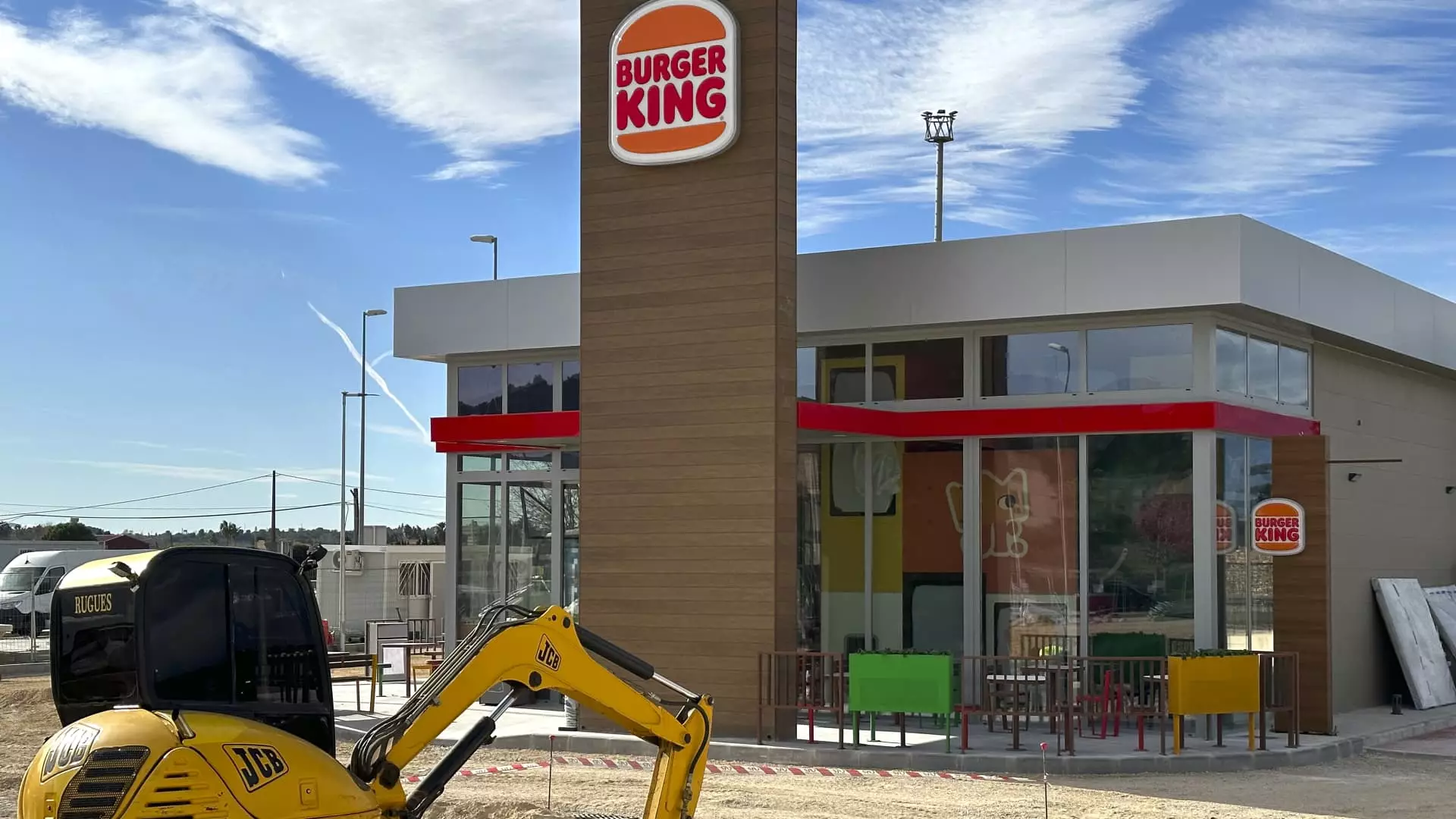In its latest earnings report released on Tuesday, Restaurant Brands International (RBI) showcased a disappointing financial performance that did not live up to analysts’ expectations. The company, which oversees well-known chains including Burger King, Popeyes, Firehouse Subs, and Tim Hortons, reported a mixed bag of results for the third quarter. Specifically, the earnings per share stood at 93 cents, falling short of the anticipated 95 cents, while revenues reached $2.29 billion, below the expected $2.31 billion. The adverse market reaction was swift, with shares dropping about 2% in early trading following the news.
RBI’s figures indicate a sluggish growth in worldwide same-store sales, which rose a mere 0.3% during the quarter. This performance reflects a worrying trend for the company, as all four chains experienced a downturn in domestic same-store sales. Notably, the declines at Burger King, Firehouse Subs, and Popeyes signal persistent challenges amid an increasingly competitive fast-food landscape.
Taking a closer look at individual chain performance, Burger King recorded a decline of 0.7% in same-store sales, contrary to the flat growth anticipated by analysts. As the brand embarks on a revitalization strategy initiated in September 2022, broader economic trends are also influencing customer spending habits. CEO Josh Kobza noted that rising inflation and decreasing consumer spending in previous months are contributing to the brand’s difficulties. The re-emergence of value as a focal point in fast food marketing complicates efforts to shift consumer attention towards new menu items, such as the recently promoted Fiery menu.
Turning to Popeyes, the situation appears even dire, with same-store sales plummeting 4%, far from the expected 0.2% gain. Despite attempts to enhance its value offerings through promotions like a three-piece chicken deal for $5, the chain still fell significantly short of projections. Firehouse Subs, the relatively recent addition to RBI’s portfolio, reported a 4.8% decline in same-store sales, missing estimates of a 0.4% decrease. These performance figures highlight the uphill battle facing these brands in maintaining consumer loyalty in a time of economic uncertainty.
Despite the lackluster third-quarter results, there are glimmers of hope for RBI as it moves into the fourth quarter. Kobza mentioned a notable improvement in same-store sales trends during October, with performance shifting to low-single digit growth. He attributes this positive change to more effective marketing strategies and an uptick in consumer sentiment, particularly in the U.S. market. Factors such as lower gas prices, decreasing interest rates, and moderating inflation may also contribute to rejuvenating consumer confidence.
Tim Hortons emerged as a bright spot among RBI’s brands, with a domestic same-store sales increase of 2.3%. Although this growth was still below Wall Street’s expectations, it suggests improvements in service efficiency and customer traffic. Meanwhile, international performances also exceeded some expectations, with same-store sales growing 1.8%, although this fell slightly short of the 2.2% forecast.
The earnings report prompted RBI to revise its projections for full-year system-wide sales growth, adjusting expectations down to a range of 5% to 5.5%, from an earlier forecast of 5.5% to 6%. This move underscores the uncertain landscape the fast-food industry is navigating, as operators increasingly heed consumer behaviors evolving in the face of inflationary pressures and economic challenges.
While Restaurant Brands International grapples with disappointing quarterly results and mixed performances across its brands, emerging positive trends in consumer sentiment provide a potential pathway toward recovery. Nevertheless, the company must remain vigilant and agile in adapting its strategies to navigate this tumultuous market effectively.


Leave a Reply